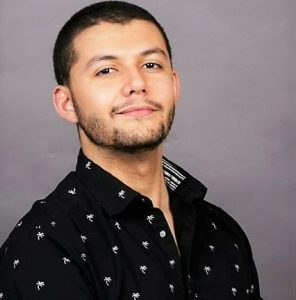Study of Civil-Military Relations Leads to Diversity Fellowship for SPSIA Student

Advocating for inclusion and researching civil-military relations are just a few of the things Salah Ben Hammou does in the School of Politics, Security, and International Affairs.
The Security Students Ph.D. student became interested in politics at the age of 14 after observing the Arab Spring, a series of anti-government protests in the 2010s that spread across the Middle East and North Africa. The newfound knowledge lit a fire in Ben Hammou and focused his research on coups and the relationships between the military and civilians.
“The 2016 failed coup in Turkey [also] really captured my attention and clued me in on the paradox that while militaries are charged with national defense, they can also pose significant threats to the governments they are supposed to protect,” Ben Hammou said.
Ben Hammou now joins the diversity fellowship from the American Political Science Association for his research. He explains that the diversity fellowship program did not list Middle East and North African (MENA) students among the eligible groups that could apply. Ben Hammou and a few of his peers advocated on Twitter to change that.
“We made it known that folks from the Middle East are also minorities and face different structural challenges”, Ben Hammou said. The APSA welcomed scholars of MENA descent to their application portal in November 2021.
Ben Hammou’s dissertation focuses on shedding light in politics of civil-military relations in the Middle East and North Africa. His research explains the agency civilians possess in coup politics, often enabling and supporting military interventions in politics.
Aside from researching coups and civilian-military relations, Ben Hammou is the founding member of a virtual group called Jam3a. With over 250 members from around the world and across different disciplines, Jam3a serves as a platform for students to coordinate with each other and with researchers based in the region. Ben Hammou connects with his peers virtually to support and network with one another.
Ben Hammou’s future goals include becoming a tenure-track professor and continuing his research on civil-military relations and coups, as well as advocate for underrepresented groups.
“I highly encourage others to apply even if it appears that they are barred from entering the program like in my experience,” Ben Hammou said. “You have to fight and make yourself known and, by doing so, you can create great experiences and opportunities.”
